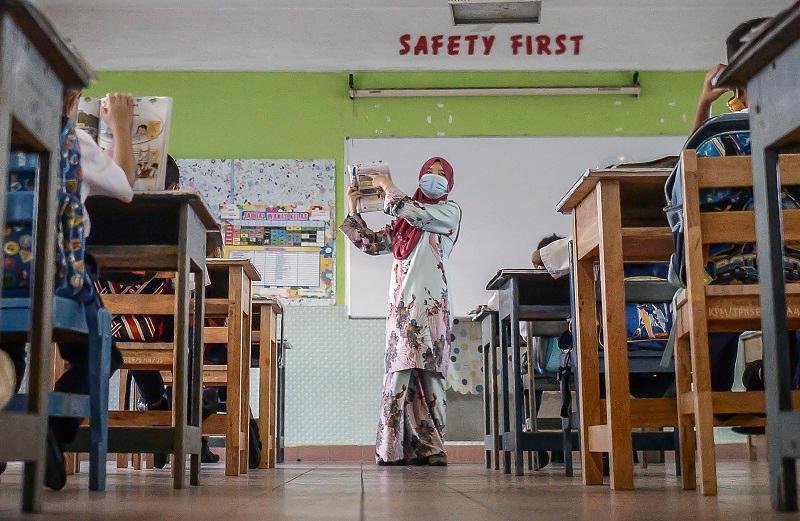PETALING JAYA: Sex education is often seen as a sensitive and overlooked topic, especially when it involves children with disabilities.
As such, educators have emphasised the need for inclusive and accessible sex education that empowers these individuals.
Education service officer under the Education Ministry, Wan Mohammad Fairuz Wan Mohammad, told theSun that there is a high level of difficulty in ensuring effective
two-way communication with students who suffer from hearing impairments
“When it comes to teaching sex education, there is a need for clear, accurate signs and visuals to avoid confusion.
“These students depend heavily on sign language, visuals and facial expressions. Abstract topics like emotions, relationships, and personal safety are especially hard to convey.
“Content must be developmentally appropriate, culturally sensitive and communicated with care,” he said.
He also emphasised the importance of parental support, adding that some parents may be uncomfortable with the subject.
“But these students, just like everyone else, have bodily rights.
“They need to understand how to recognise unsafe touch, how to protect themselves and how to feel confident in their autonomy,” he added.
Universiti Teknologi Malaysia professor of Psychology and deputy dean Prof Dr Siti Aisyah Panatik said children with cognitive impairments are often concrete thinkers who interpret information literally.
“This makes abstract ideas like privacy, love or consent harder to understand unless explained through visual or hands-on guidance.”
Siti Aisyah said children with intellectual disabilities or autism spectrum disorder need clear, consistent examples to grasp context based behaviour, such as when a hug is appropriate.
“They may also struggle with executive functioning, including impulse control and memory retention. That’s why it’s essential to use direct, simple language.
“Instead of using terms like ‘violation,’ say ‘safe touch’ and ‘unsafe touch.’
“For example, ‘A hug from mom when you’re sad is a safe touch. Someone touching your private parts is an unsafe touch.’ This makes it clearer for them,” she said.
Siti Aisyah added that another key concept is body ownership – teaching children that their body belongs to them and they have the right to say “no” to unwanted touch.
“Identifying trusted adults and safe spaces is also important, and visual tools such as picture charts help improve understanding and recall.
“For non-verbal children or those with limited communication skills, augmentative and alternative communication tools like picture boards and assistive tech can be invaluable.
“Role-play, visuals and real-life examples also reinforce how to respond to unsafe situations.
“We can teach children to ask for permission before physical contact and to respect boundaries. These practices help normalise the concept of consent,” she said.
Sam Yoke National Type Primary School (Chinese) special education integration programme teacher Mohd Fadli Md Ali said communication is one of the biggest challenges.
“We often rely on physical objects or images to understand their needs because verbal communication isn’t always effective,” he said.
“Maintaining their focus also requires creativity and patience. Students with autism, for example, may drift into their own world.
“They get easily distracted, so we need to keep lessons structured yet flexible to help them stay engaged.”
Johor Disabled Children Charitable and Cares Organisation founder and president Mohd Yahya Haidrus stressed the urgent need to develop sex education tailored to special needs children.
“A structured, accessible curriculum can help them recognise inappropriate behaviour, understand consent, maintain hygiene and form safe, respectful relationships – both online and offline,” he said.
Although Malaysia has laws such as the Sexual Offences Against Children Act 2017, Child Act 2001 and Persons with Disabilities Act 2008, enforcement remains a challenge.
“We need to implement these laws more effectively and educate parents and caregivers so they can advocate their children’s rights,” he said.









